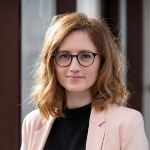This year, the University of Stuttgart took part in the Diversity Charta's [de] nationwide Diversity Day with a three-day program of events. Due to the pandemic, a range of informative and interactive digital events were held online from May 18 to 20, 2021. This year, the motto for Diversity Day at the University of Stuttgart was “Diversity in Teaching and Research”.
Rector Prof. Wolfram Ressel opened the Diversity Day event at the University of Stuttgart, taking the opportunity to highlight the advantages of online formats. He emphasized the importance of safety and accessibility, despite the enormous flow of data, and that critical reflection is important, even in science.
Rector Ressel referred to the new research focus IRIS (Interchange Forum for Reflecting on Intelligent Systems) at the University of Stuttgart, where all scientific disciplines come together in the spirit of the Stuttgart Way, with the aim of involving the public in the development of ideas on how intelligent systems can enrich our future in the fields of research and teaching.
Using critical reflection to break established patterns of thought
Junior Professor Maria Wirzberger, spokesperson for IRIS, used her introductory lecture “Are you still thinking, or deliberating already?” to introduce methods that can be used for online teaching. Together with Tabea Berberena, coordinator of the learning forum RISING (Reflecting on Intelligent Systems in the Next Generation) [de], she took the audience on a digital journey of self-reflection. With experimental activities, such as so-called "Jolts" in Thiagi style, the audience were encouraged to engage in self-reflection. Wirzberger used this exercise to show how “unconscious bias”, i.e., unconscious and automatic thought processes, function.
Overcoming unequal origins
The second day focused on the topic of "social origins". This event highlighted ways to support the next generation and how to raise awareness among university members about the issue of "social origin" For the university, this means ensuring equal opportunities and encouraging talent.
The next generation of students at the University of Stuttgart can only flourish if we embrace diversity and accept it 100 percent - this makes excellence in science possible.
Prof. Monilola Olayioye, Vice Rector for Early Career Researchers and Diversity
Prof. Monilola Olayioye, Vice Rector for Early Career Researchers and Diversity (WiND), emphasized in her opening speech: “The next generation of students at the University of Stuttgart can only flourish if we embrace diversity and accept it 100 percent - this makes excellence in science possible.”
Katja Schuster from the International Office spoke about the options for studying abroad and presented the key aspects of the new generation of the ERASMUS+ program [de] (2021-2027). Jaana Espenlaub, state coordinator of the Arbeiterkind.de [de] initiative, and Yannis Salteris, student and mentor at Arbeiterkind.de, invited all participants to take part in a privilege check.
Dr. Claus Baumann from the Working Group for Education and Social Inequality also provided comprehensive insight into the socioeconomic, educational-cultural and psychological factors associated with unequal educational opportunities.
This was followed by Katharina Wilhelm, personal assistant to the Vice Rector WiND, who introduced the project “POWERst – emPOWERing first generation STudents”. This project is coordinated by the Vice Rector WiND and aims to improve conditions at university, to encourage talent and to support teaching staff and administrative employees. The project includes International Summer Schools for students, video tutorials, workshops and training courses for employees. Noelia Loaiza Villagómez and Silvana Miranda from theStudent Council’s (stuvus) Gender, Diversity and Social Equality Office [de] rounded off the afternoon with an open discussion, motivating students to get involved with stuvus and other committees.
Privileges – a question of perspective
The Privilege Walk is intended to encourage reflection of one's own life and the aspects that have shaped it. The participants agreed that that it is important to gain a new perspective and to learn about the background of those around us. The workshop created an awareness of how diverse privilege can be and that it is mostly perceived as a normal state.
The Diversity Days highlighted the need to learn about and apply different perspectives, and different career paths, as well as a variety of research methods, in order to ensure that diversity promotes intelligence.

Katharina Wilhelm
Dr.Personal Assistant to the Vice Rector for Early Career Researchers and Diversity



